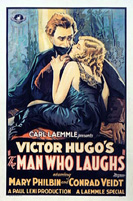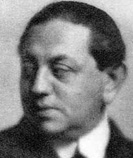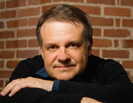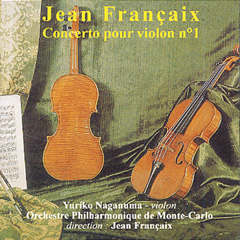The Man who Laughs

- Production : Universal - USA, 1928
- Length : 116 min at 22 frames/second
- Orchestration : 1st violin, 2nd violin, Viola, Cello, Double Bass, Clarinet, Bassoon, French Horn, Piano
Scenario :
In XVIIth century England, King James II rids himself of a political enemy and gives his enemy’s young son to the comprachicos (or « child-buyers » as Victor Hugo calls them) who transform the children into freaks with the intent of showing them at fairs. The child has the corners of his mouth lifted so that his teeth show in a permanent grin. Abandoned by the comprachicos, he is left alone in the snow and finds a baby crying in the arms of its dead mother. He seeks refuge in the nearest shanty and is taken in by Ursus, the philosopher.
Now grown up and a famous clown, Gwynplaine, better known by the nickname of « the man who laughs » goes from fair to fair with Ursus and Dea (the child he saved) now a young woman with angelic features, but born blind. Gwynplaine loves Dea and dreams of marrying her, but wonders if he has the right to profit from her handicap to conceal his own.
When he performs in front of the Queen’s half-sister, Josiane, a wily and sensual duchess who loves this sort of act, a jester tells Queen Anne who Gwynplaine really is, a lord’s heir. To establish her power, the Queen decides to marry him to Josiane. Soldiers come to get Gwynplaine in his caravan to take him to court, but he creates a scandal in the House of Lords by denouncing the Queen’s decision to marry him to the duchess. Chased by armed soldiers, he manages to escape and finds, in extremis, Ursus and Dea as their boat leaves to take them into exile.
The Director :
Paul Leni
 Paul Leni directed his fourth film in the USA with The Man who Laughs. Making films at the peak of the silent movie era, this former set designer succeeded in marrying theatrical decor with action cinema, at the same time combining comedy and horror.
Paul Leni directed his fourth film in the USA with The Man who Laughs. Making films at the peak of the silent movie era, this former set designer succeeded in marrying theatrical decor with action cinema, at the same time combining comedy and horror.
Paul Leni’s culture and refinement in the German expressionist cinema ensured the success of The Man who Laughs. Leni proved to be a master at creating nightmarish suspense through allusion and had untold influence on American thrillers before dying prematurely of blood poisoning in 1929 at the age of 44.
The Composer :
Gabriel Thibaudeau
 Born in 1959 in Beauharnois, Quebec, Gabriel Thibaudeau studied piano at the Vincent d’Indy Music School and composition at the Music Faculty of Montreal University. He also participated in summer schools at the Orford Arts Center where he worked on composition with Iannis Xenakis.
Born in 1959 in Beauharnois, Quebec, Gabriel Thibaudeau studied piano at the Vincent d’Indy Music School and composition at the Music Faculty of Montreal University. He also participated in summer schools at the Orford Arts Center where he worked on composition with Iannis Xenakis.
As permanent pianist at the Quebec Film Library since 1988, and recognised as the Canadian specialist in the accompanying of silent movies, he has been invited since 1991 to the Gionarte del Cinema Muto, in Pordenone and since 1992 to the festival Il Cinema Ritrovato, in Bologna, Italy.
Since 1993, among other works for the silent cinema, he has composed a quintet for brass and percussion for the film Straight Shooting, a concerto for piano and chamber orchestra for the film The Fall of the House of Usher, a sextet for the film Foolish Wives, and a Requiem for soprano and piano for the film The Hunchback of Notre-Dame. In association with the Octuor de France he has composed the music to accompany The Man who Laughs, Au Bonheur des Dames, The Iron Mask and Poil de Carotte, as well as adapting for the Octuor de France his orchestral score for The Phantom of the Opera.
 English
English Français
Français











